

On August 29, the 2024 Postdocs' Academic Exchange on "Intelligent Computing" was held at Zhejiang Lab (ZJ Lab), attended by more than 200 postdocs from Tsinghua University, Fudan University, Shanghai Jiao Tong University, Huazhong University of Science and Technology and Southeast University, who shared their research results and conducted academic exchanges about computing for innovation and industrial transformation.
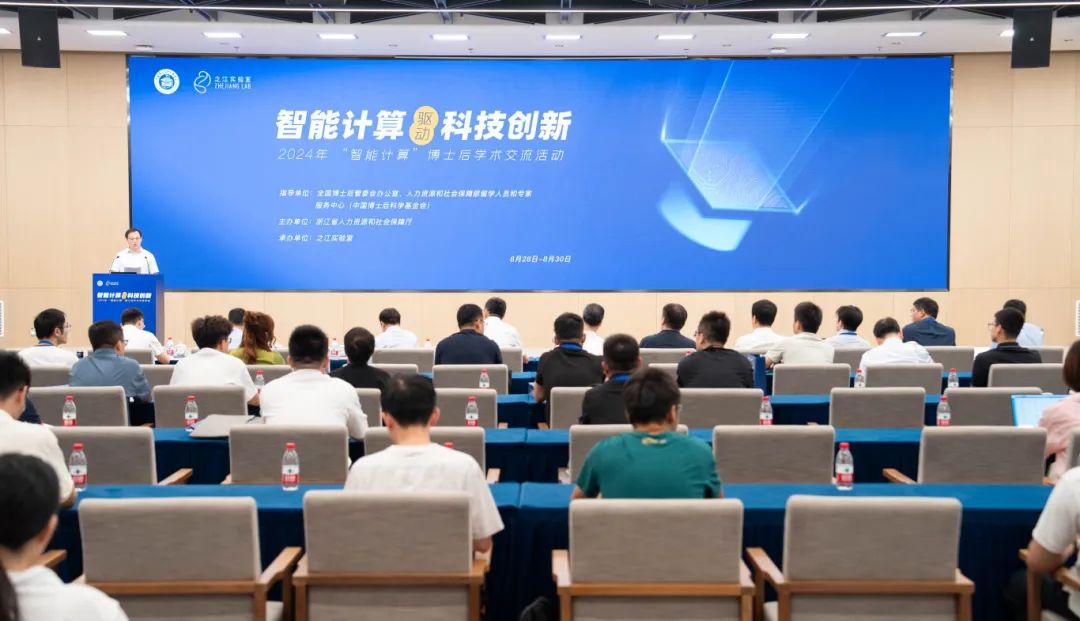
CHEN Wei, Vice President of ZJ Lab, delivered speeches at the event. HE Shuibing, Vice President of ZJ Lab, hosted the opening ceremony. The keynote session was hosted by LI Chao, Vice Chairman of ZJ Lab's Advisory Evaluation Committee on Talent Cooperation.
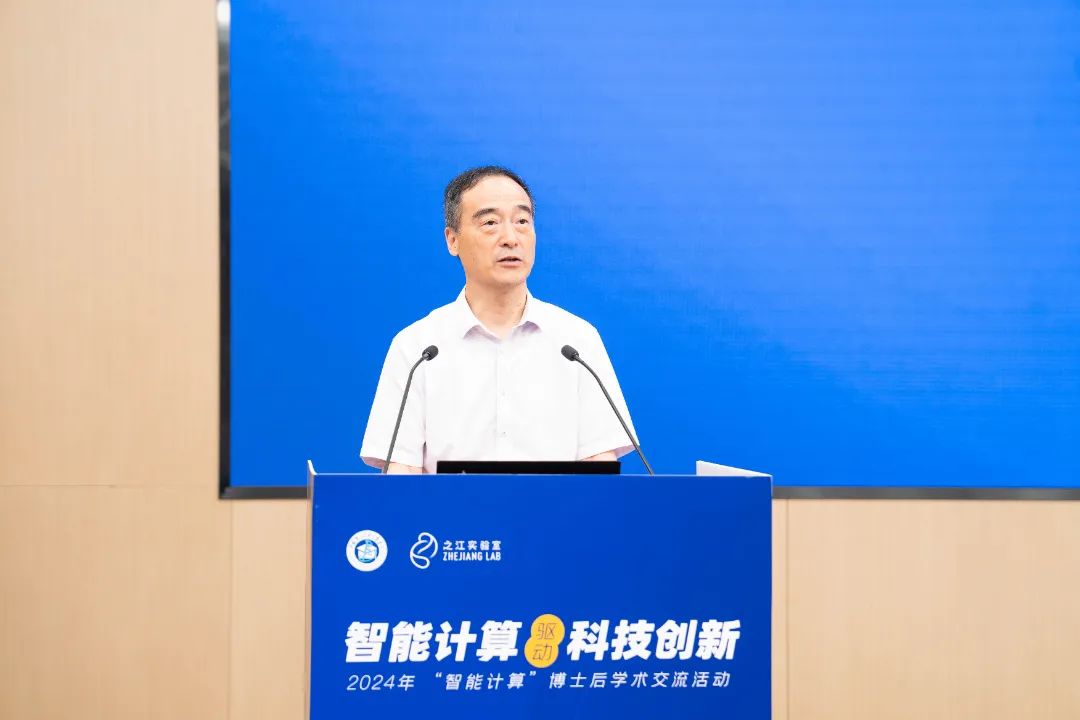
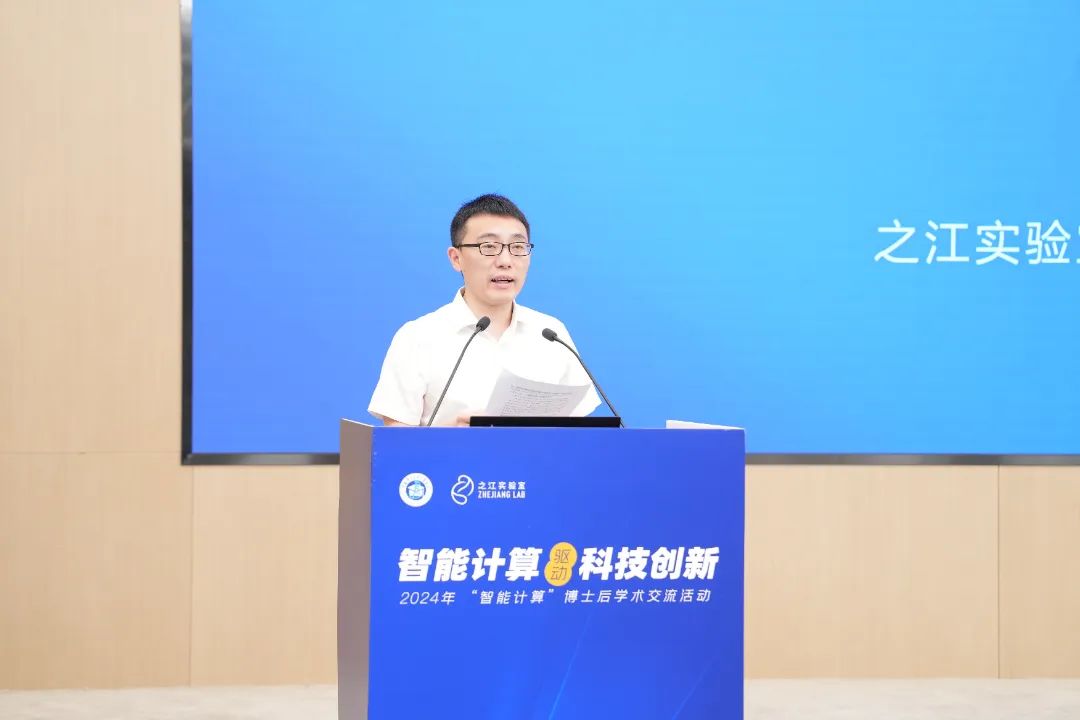
YUAN Xiaocong, Chief Scientist of ZJ Lab's Research Center for Frontier Fundamental Studies and Member of the Academia Europaea, gave a speech entitled Development Ideas of Cutting-Edge Fundamental Research on Intelligent Computing, presenting the connotation, characteristics and trends of intelligent computing, as well as ZJ Lab's orientation and goals of cutting-edge fundamental research in the field of intelligent computing. He noted that intelligent computing is based on computational power and centered on algorithm models, and uses sensors as an important channel to acquire data. In the field of fundamental research, ZJ Lab explores ways to address the limits and bottlenecks of computational power, algorithms and computing sensing based on new theories and methods of mathematics and physics. In addition, YUAN Xiaocong also introduced ZJ Lab's open science and platform carrier, and expounded his understanding of "independent spirit and free thought" concerning talent training.
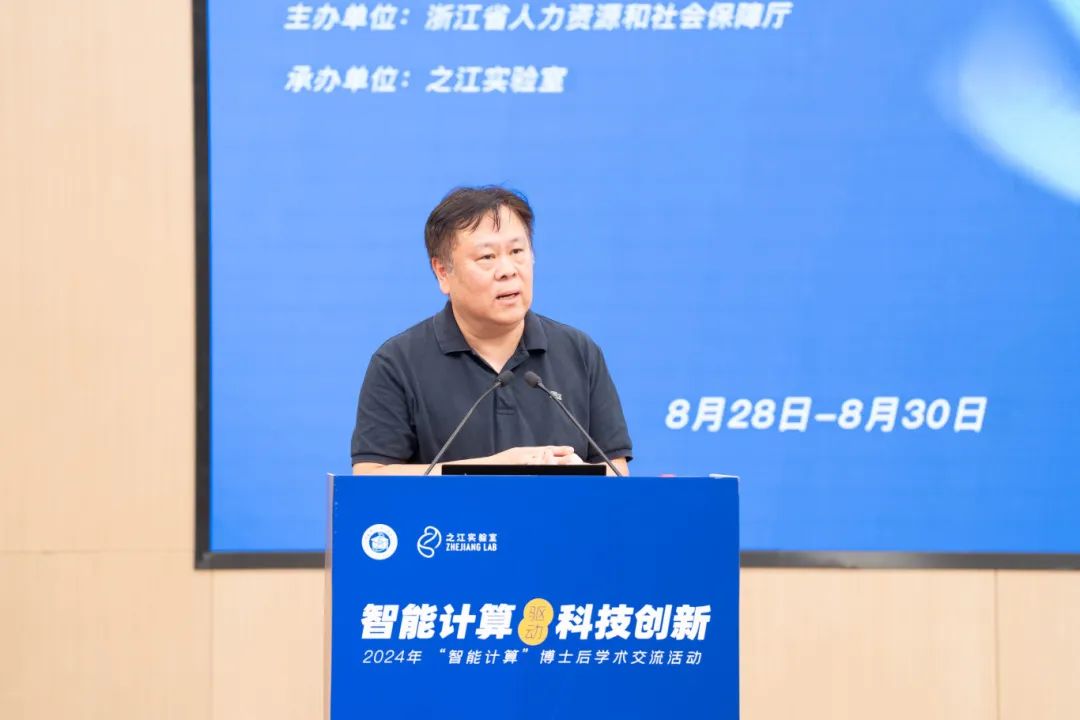
GUO Minyi, Chair Professor from Shanghai Jiao Tong University, gave a speech entitled Cloud Infrastructure Construction and System Design in the Era of Intelligent Computing, expounding on the intelligent computing cloud in three dimensions: connotation, implementation and application. Additionally, Prof. GUO Minyi elaborated on the three technical difficulties and breakthroughs in computational power pooling, Cloud-Native and intelligence specialization, as well as the technical outcomes, technology application and research prospects relating to intelligent computing cloud. He said that intelligent computing is a new quality productive force in the era of digital economy, which will provide fresh impetus for scientific and technological progress and the implementation of technologies and drive the leap-forward development of science and technology. The new demand in the era of intelligent computing poses a new challenge to the intelligent computing cloud. Therefore, it is particularly important to build up intelligent computing cloud platform capacity in three dimensions: applications, computational power, and systems.

Focusing on High-Performance Intelligent Computing Technology, Prof. LI Dongsheng from the College of Computer Science and Technology of the National University of Defense Technology introduced in detail the urgent demand for high-performance intelligent computing, technology trends, and innovative studies. He noted that customized accelerators are harnessed for enhanced core intelligent computing efficiency, and new architectures are adopted to improve the integrated intelligent processing capacity, making parallelism an important way to increase intelligent computational power. In response to our future development needs, LI Dongsheng shed light on the intelligent applications oriented toward typical domains, and proposed that domain-specific intelligent algorithms are leveraged to establish an efficient software-hardware collaborative innovation system based on domain-specific intelligent chips, intelligent computers and intelligent computing support environments.
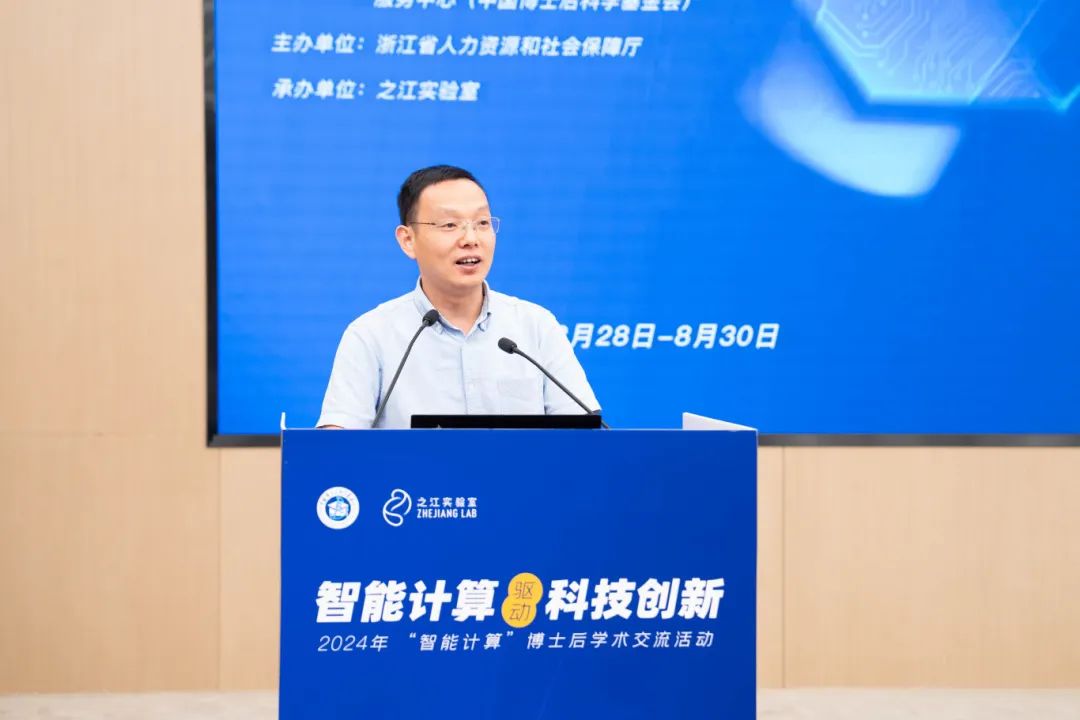
Prof. ZHANG Guangyan from the Department of Computer Science and Technology of Tsinghua University gave a speech entitled Accelerating Cache for File Scanning Workloads on Intelligent Computing Platforms, introducing StreamCache, an in-kernel page cache management method. By verifying its performance on real-world workloads, performance under different workload parameters and technical contributions, this method can effectively reduce the interference of background writebacks with foreground writes and optimize memory allocation.
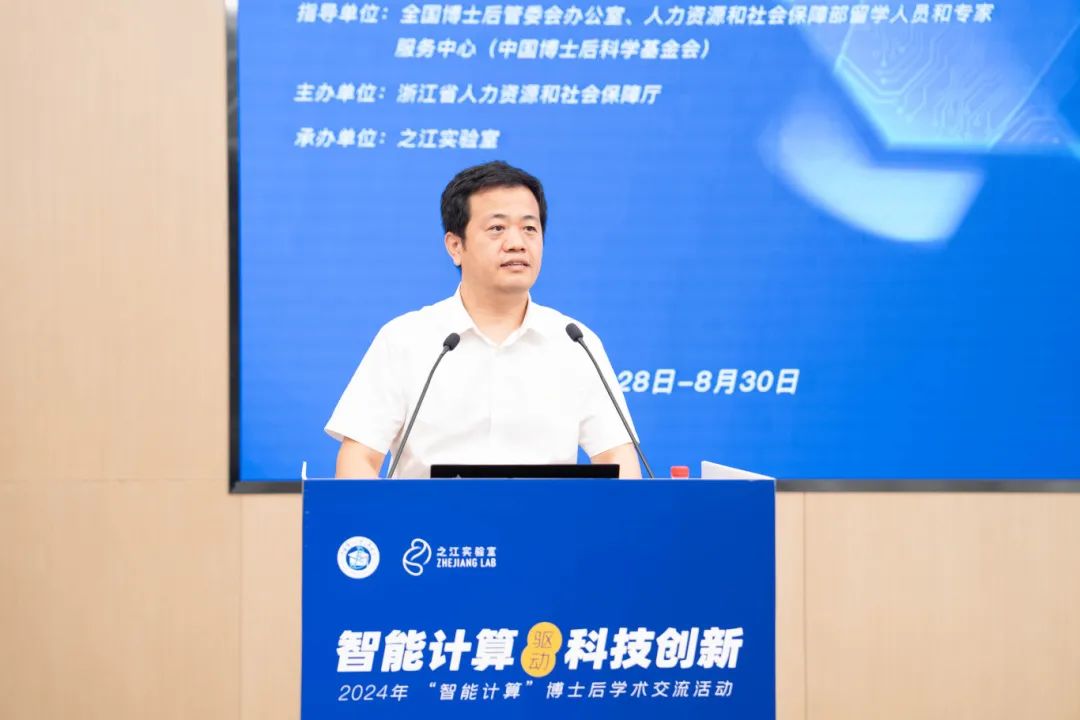
In the afternoon panel discussion session, researchers from ZJ Lab, Tsinghua University, Zhejiang University, Shanghai Jiao Tong University, and other universities, research institutions and enterprises devoted a full discussion to the three topics: big data and foundation model, high-performance intelligent computing system, and AI for Science, and talked about the future of technology.
Postdocs are a new vibrant part of young S&T talents, and ZJ Lab always gives priority to postdoc training. Since the establishment of the post-doctoral research center in 2018, ZJ Lab has gathered resources from all sectors of society and offered support and care to postdocs in multiple fields including policies, funds and career development. At present, a sound post-doctoral talent attraction, development, retention and utilization mechanism has been established, with a total of 456 postdocs recruited and 177 outbound postdocs.











